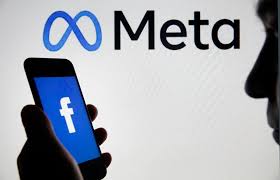Regulators in the European Union charged on Monday that Meta Platforms, a social media firm, had violated the new digital competition guidelines of the bloc by making Facebook and Instagram users pay to avoid advertisements or see them.
In November, Meta started allowing users in Europe to purchase ad-free versions of Facebook and Instagram to adhere to the stringent data privacy laws on the continent.
For at least 10 euros ($10.75) a month, users can opt out of having their personal data used to target them with advertisements.
The European Union’s top court decided that Meta must first obtain consent before presenting advertising to users, a decision that challenged the American internet giant’s business model of customizing adverts based on each user’s online interests and digital behavior.
As a result, the company announced the alternative.
The European Union’s executive branch, the European Commission, announced that the initial results of its inquiry indicate that Meta’s “pay or consent” advertising model violated the Digital Markets Act of the 27-nation bloc.
The commission claimed that users cannot exercise their right to “freely consent” to having their personal information from Facebook, Instagram, Marketplace, WhatsApp, and Messenger merged to target them with customized online adverts because of Meta’s business model.
According to the statement, Meta’s concept does not provide customers with the choice of a less customized service comparable to its social networks.
In a statement, Meta said, “Subscription for no ads complies with the DMA and follows the direction of the highest court in Europe.” “We anticipate having more fruitful conversations with the European Commission to conclude this investigation.”
The DMA, or rulebook, went into force in March, which is when the commission launched its probe.
With severe financial penalties, the comprehensive set of rules aims to stop electronic “gatekeepers” from controlling digital markets.
Laptops 1000Reducing the influence of Big Tech firms, who have amassed enormous amounts of personal data about their customers and are using it to outbid competitors in the online advertising and social media space, is one of the objectives of the DMA.
The commission stated that it would prefer an option that doesn’t depend on sharing a user’s entire personal information for advertising for Meta to comply.
European Commissioner Thierry Breton, who is in charge of the bloc’s digital strategy, said in a statement that the DMA is intended to “give back to the users the power to decide how their data is used and ensure innovative companies can compete on equal footing with tech giants on data access.”
The commission has until March 2025 to complete its investigation, after which Meta has the opportunity to react. The corporation may be subject to fines exceeding billions of euros, equal to 10% of its yearly worldwide earnings.
According to the Digital Markets Act, Facebook, Instagram, WhatsApp, Messenger, and its online ad business are among the two dozen “core platform services” that require the greatest level of scrutiny, while Meta is categorized as one of seven online gatekeepers.
The latest in a series of regulatory actions by Brussels aimed at Big Tech corporations is the decision made on Monday.
A week ago, the EU brought its first allegations under the DMA, claiming Apple was prohibiting app developers from directing consumers to less expensive options available outside of its App Store.
It recently accused Microsoft of breaking antitrust laws in the bloc by combining its popular Teams messaging and videoconferencing tool with its popular Office corporate suite.

















